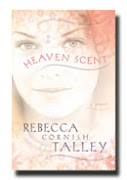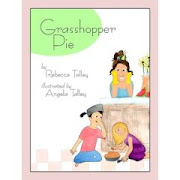
Book Description
Liza is in top form on the basketball court. She’s grace under pressure when it comes to sinking two key free throws to win the state basketball championship for the Aldrich Height’s girl’s team. Yet another pressure is building inside her and is about ready to explode.
Liza wanted her father to pay more attention to her, and she'd wanted her family to be like it used to be. She hadn't wanted everything to change so drastically that she may not even survive it. As she proves herself a basketball star, everyone - from college basketball recruiters to the gorgeous Kyle Reynolds - seems to take note of her. Everyone, that is, except her own father. While her father is busy at his law practice, Liza learns about a strange new religion from Kyle. Could Kyle's religion help her family? Or is it already too late for her father to make amends? When yet another broken promise finally leads to tragedy, Liza doesn't know if she will ever be able to forgive her father. It will take a good friend, a new belief, and a miracle straight from heaven to help Liza see that she still has a choice. The compelling story of a high school basketball star, this is a novel every girl will want, and none will be able to put down!
My Thoughts
I really enjoyed Heaven Scent. I felt like Rebecca Talley did a great job of creating multi-threaded story that can and should attract readers of both genders—whether youth or adult.
The main focus is on Liza and the challenges she faces with trying to rebuild a relationship with her father, understanding and being understood by her mother, and getting along with her brother. There’s also Kyle Reynolds, a gorgeous boy, as Liza puts it, with a strange religion. As Liza learns more about the religion she hopes can help her family. The real help, though Liza doesn’t begin to realize it, comes when tragedy strikes and she and her father are both compelled to be humble, though in different ways, and take a hard look at the important things in life.
Weaved in with Liza’s story is the story of her mother, trying to find back to a religion and a God that she’s ignored for years—hoping that doing so will somehow save her dying marriage and keep the family from being torn apart.
There’s also the story, though minor, of her brother Jason, and how he tries to cope with their father’s apparent abandonment of the family for his work.
And lets not forget the story of Liza’s father. Here’s a man who had a very happy family life before he got sucked into the “being successful at work and having lots of material things can make me and my family happy” vortex. Once in the vortex, he became oblivious to his own loss and didn’t have a clue as to what he had done to his family. Only a terrible tragedy that compelled him to be humble, could open his eyes to his loss and open the way for healing to begin.
In addition to the wonderful threads mentioned above, I believe the author had the idea that above all, finding a relationship with God leads to the healing of the heart and home. Throughout the story we get glimpses of how turning to God starts to change their family. Liza’s friendship with Kyle, Kyle and his Father’s visits, reading the Book of Mormon, some poignant nudging from Liza’s deceased mother Claire, and the sweet scent of Claire’s perfume all prepare the ground for reception of the comforting influence from God that, in the end, leads Liza and her Father to a place where healing can begin.
I only had three minor criticisms of the book. I felt at times that there was question overkill when Liza was thinking to herself. It got a little distracting. Also, I felt like some of the conflicts were resolved a little too easily. Additionally, I felt like the ending left a little too much hanging. I would have like to have known a little more about the development of Liza and her Father’s relationship as well as their relationship to God. Perhaps though, Rebecca left things hanging with the idea of a sequel in mind. If so, I won’t complain.
Overall, it’s a great book for a first time author. I give it a rating of 4 out of 5 stars!



